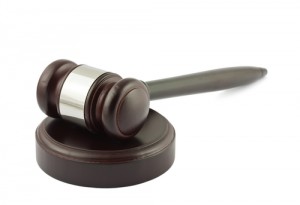Virginia Holds Determination Whether Insurer Acted In Bad Faith Must Be Made By The Judge And Not The Jury
This country’s courts are split on whether the decision to award attorney’s fees in bad faith litigation should be made by the judge or the jury. Earlier this fall, Virginia aligned itself firmly with the former in Revi, LLC v. Chicago Title Ins. Co., 776 S.E.2d 808 (Va., Sep. 17, 2015), holding 6-1 that the word “court” in the statute allowing an attorney’s fee award in such cases meant that the determination was one left to the trial judge.
 The insured purchased a five-acre parcel along the Potomac, intending to develop the property, only to discover that it was subject to National Park Service restrictions. The policyholder’s title insurer then negotiated an agreement with the park service which removed most — but not all — of the restrictions. The insured signed that after receiving assurances from the carrier that it would be indemnified for any diminution in the property’s value as a result of the remaining restrictions.
The insured purchased a five-acre parcel along the Potomac, intending to develop the property, only to discover that it was subject to National Park Service restrictions. The policyholder’s title insurer then negotiated an agreement with the park service which removed most — but not all — of the restrictions. The insured signed that after receiving assurances from the carrier that it would be indemnified for any diminution in the property’s value as a result of the remaining restrictions.
The policyholder then filed a proof of loss contending that the restrictions diminished the parcel’s value by $1.6 million, but the insurer responded that they had no effect on its value and that the insured had suffered no compensable loss under the contract of insurance as a result. Litigation followed.
The Circuit Court’s chief justice handed down a pre-trial ruling that the jury could determine whether the carrier had committed a bad faith breach of contract warranting an award of attorney’s fees, and the case proceeded to trial on that basis. The jury awarded $1.241 million in damages and $442,000 in attorney’s fees and costs. The trial judge subsequently had second thoughts, however, and he vacated the award of attorney’s fees after concluding that the decision should be made by the judge instead. He then reconsidered the evidence de novo and found that it was insufficient to prove that the title insurer had acted in bad faith.
On September 17th, the Virginia Supreme Court affirmed in an opinion authored by Justice William Mims. The decision turned on statutory construction. In Virginia, attorney’s fees are only available if allowed by contract or statute. The relevant provision here was Code § 38.2-209(A) which recited as follows:
[I]n any civil case in which an insured individual sues his insurer to determine what coverage, if any, exists under his present policy, . . . the individual insured shall be entitled to recover from the insurer costs and such reasonable attorney’s fees as the court may award. However, these costs and attorney’s fees shall not be awarded unless the court determines that the insurer, not acting in good faith, has either denied coverage or failed or refused to make payment to the insured under the policy.
(emphasis by the court) The key question was obviously what constitutes a “court.”
The justices surveyed the statutory history, noting that a prior version enacted in 1982 stated that the bad faith determination and the attorney’s award were to be made by “the trial judge.” This was changed to its present form by the Recodification Act of 1986 which was drafted by the Virginia Code Commission. A Code Commission report identified the principal substantive changes to each chapter, and none were red-flagged for Code § 38.2-209(A). The high court’s decision stated that the justices “accept the report as ‘persuasive authority’ that the General Assembly did not intent to make a substantive change” in the statute when substituting “court” for “trial judge.”
The opinion also rejected the policyholder’s argument that it was losing its right to a jury trial, noting that the insured still had the right to trial by jury with respect to its breach of contract claims. According to the court:
Code § 38.2-209(A) does not create an independent cause of action for an insurer’s bad faith breach of an insurance contract. . . . Rather, the section authorizes the court to award attorney’s fees and costs after the insured establishes coverage under the disputed policy, and the court finds that the insurer denied coverage in bad faith. It is a vehicle for shifting attorney’s fees and costs where otherwise such costs would not be recoverable.
Justice D. Arthur Kelsey dissented, lamenting what he called “a modern jurisprudential trend” away from trial by jury generally. In his words:
I believe that the term “court” in Code § 38.2-209(A) is ambiguous because reasonable interpreters could read it to include a jury or, conversely, to exclude a jury. Picking solely from these opposing views seems to me to miss the forest for the trees. The legal timberland of the Commonwealth was planted by arborists who consider the citizen jury as sacred. If any reasonable statutory construction exists to preserve this “preferable” method of deciding disputes, Va. Const. art. 1, § 11, it should prevail over all the others.